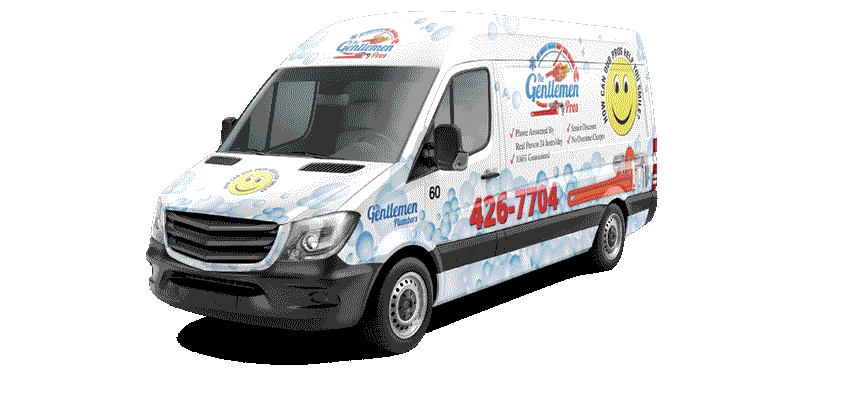
Same Day Service
Since 1992
Call The Gentleman Pros Now!
(403) 879-1759

Sewer back-ups are often the result of roots growing in the main sewer line.
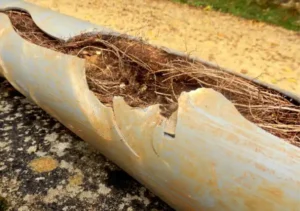
Sewer back-ups are often the result of roots growing in the main sewer line.
A sewer backup is when the wastewater comes back through your drain because your main sewer line is clogged.
The sewage will return through the lowest drain in the house. In Alberta, most often sewage returns through a basement floor drain, basement shower or tub drain, basement toilet or basement cleanout.
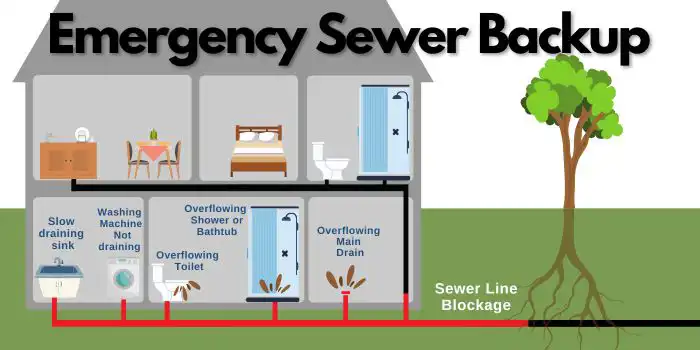
If you haven’t had a sewer backup, you do not want one!
Avoid a sewer backup by scheduling a sewer camera inspection. This ensures you are aware of faulty sewer pipes or root infestations before a major sewer backup happens!
Roots most often grow inside a sewer line because the pipes are:

As the pipes and pipe joints wear out, small leaks can allow roots to enter the sewer pipe. Even a crack the size of a hair can allow a tiny root to make its home inside the sewer pipe.
Over time the root establishes in the sewer pipe and grows into a root ball. As the roots grow in size they act as a net collecting solid waste and debris as waste water passes through the pipe.

Over time, a clog will form near the root growth, eventually making it impossible for waste to pass through the sewer line. The result is a sewer backup, and wastewater filling up your basement. Yuck!
The best way to ensure roots don’t invade your sewer line is to repair or replace your sewer pipes. Repairing or replacing your pipes ensures that roots will not find their way back into your sewer line, keeping them out for good.
The second best way to deal with a root invasion in your sewer line is to remove them now and then. I say now and then because root removal is a temporary fix. It doesn’t address the cause of roots entering your sewer line.
The best option for maintaining your sewer lines, if you know there are roots growing inside, is to use an auger, hydro-jet or chemically treat the roots in your sewer line.
An auger, sometimes called a snake, will drill through the clog clearing roots and debris. Augering the sewer line is a short-term solution, and the roots will grow back eventually.

Another option is to use a hydro jet to clear the sewer line. This is not the best choice if you are having an emergency sewer back up. A hydrojet is a highpresure hose. If there is a clog in the main sewer line, and water can not pass, then the water will return back, creating a bigger sewer backup.
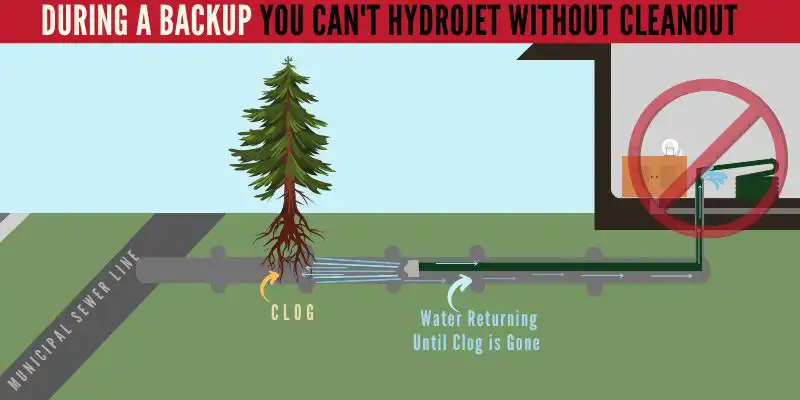
Chemical root treatments are a short-term solution to remove roots that are growing in your sewer line. Repairing your sewer line is the only way to prevent roots from returning.
Buyer beware, not all chemical treatments are created equal.
Consider these 4 tips before choosing to use a chemical root treatment!
2. Applying root killers is a band-aid solution to the bigger problem. You will eventually either have to do additional root treatments, auger, repair, or replace the pipes.
3. Once roots enter the drain system it is an ongoing problem to keep the roots at bay. Because the sewer pipes are rich in water, oxygen, and organic waste (fertilizer), the roots can be established quickly.
4. Root killers work best when the pipes have already been cleared of existing roots by augering or hydro-jetting.
Foam root killers are the most effective way to chemically kill roots.
Foam is more effective than other chemical root treatments because it coats the entire pipe interior, reaching all the root intrusions.
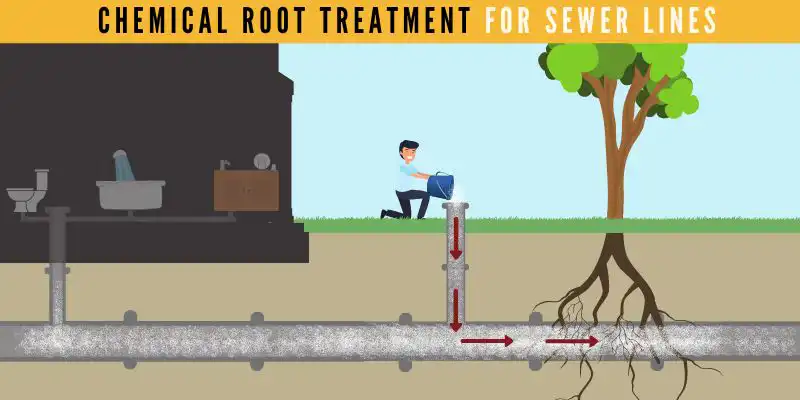
The foam fills the pipe, top to bottom and is therefore able to reach all the root intrusions.
The foam sits in the main sewer line for a few hours and the sewer can’t be used during the treatment.
Consider using an experienced plumber to apply the foam root treatment for the following reasons:
Skeptical? We are too!
Many brands of chemical root killers claim the roots growing in your sewer lines will die, disintegrate, and be flushed through the sewer line, but customers report a wide range of results.
Some report positive experiences, but others warn you not to waste your time and money.
Consider this before purchasing hardware store chemical root killers.
Who doesn’t want to save money?
But…using DIY root killers may cost you more money in the long run.

Putting off needed repairs may cost you more money later on.
Some of the most popular DIY chemical root killers for sewer pipes are copper sulphate and salt.
Pros and cons….
First the pros.
It’s not very expensive — if you can even find it.
The cons
Salt rock is a popular DIY solution but Its effectiveness is questionable.
Very questionable! 😕
The idea is that a high quantity of salt flushed down the toilet will kill roots as the dissolved salt passes through the sewer drain pipes.
In short, professionals do not recommend this solution for the following reasons:
If you are concerned about root growth in your sewer lines, schedule an appointment with one of our technicians. A camera inspection will provide the information needed to help you make the best choice for your sewer line maintenance needs.
